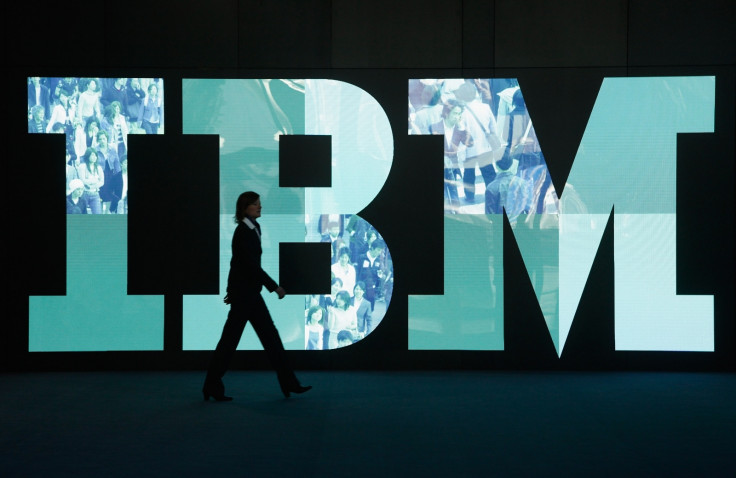IBM brings blockchain cross border payments to the world with Stellar, KlickEx and banking partners
A number of banks including BBVA, Bank Danamon Indonesia,and Mizuho Financial Group, are included in the development stage.

IBM is doing cross-border blockchain payments solution with KlickEx Group and Stellar.org, aimed at business and consumers and involving a diverse clutch of banks and financial institutions.
Stellar.orgis a Silicon Valley based nonprofit organisation that supports the Stellar network, a free, open-source network, founded by cryptocurrency luminary Jed McCaleb. KlickEx.co is a regional cross-border payments system based in the Pacific region.
The banks involved in the development and deployment process include: Banco Bilbao Vizcaya Argentaria, Bank Danamon Indonesia, Bank Mandiri, Bank Negara Indonesia, Bank Permata, Bank Rakyat Indonesia, Kasikornbank Thailand, Mizuho Financial Group, National Australia Bank, Rizal Commercial Banking Corp. (RCBC) Philippines, Sumitomo Mitsui Financial Group, TD Bank, Wizdraw (HK) of WorldCom Finance, and other financial institutions.
The new payments network, which was announced at Sibos in Toronto, is already processing live transactions in 12 currency corridors across the Pacific Islands and Australia, New Zealand and the United Kingdom, said IBM.
The network is currently in use by Advanced Pacific Financial Infrastructure for Inclusion (APFII) members, a public-private partnership initially funded by the United Nations and SWIFT. It will process up to 60% of all cross-border payments in the South Pacific's retail foreign exchange corridors including Australia, New Zealand, Fiji, Samoa and Tonga by early next year.
The convened banks will be invited to join the network and help it expand in different parts of the world beginning in 2018.
The system is built on Hyerledger Fabric. Blockchain databases provide appropriate parties with access and insight into the clearing and settlement of financial transactions; they could be said to simplify existing systems which involves a network of middle-men and cumbersome verification steps. The system is designed to augment financial flows worldwide, for all payment types and values, said a statement, and allows financial institutions to choose the settlement network of their choice for the exchange of central bank-issued digital assets.
For example, in the future, the new IBM network could make it possible for a farmer in Samoa to enter into a trade contract with a buyer in Indonesia. The blockchain would be used to record the terms of the contract, manage trade documentation, allow the farmer to put up collateral, secure letters of credit, and finalise transaction terms with immediate payment, conducting global trade with transparency and ease, said the IBM statement.
A spokesman for IBM said: "With the guidance of some of the world's leading financial institutions, IBM is working to explore new ways to make payment networks more efficient, and transparent so that banking can happen in real-time, even in the most remote parts of the world. Making distributed ledger technologies more interoperable is the latest example of IBM's leadership driving the rapid advancement of blockchain."
Rizwan Khalfan, EVP and Chief Digital and Payments Officer, TD Bank, said: "TD Bank is pleased to participate along with fellow banking leaders to observe how IBM Blockchain can support more secure and effective payments solutions. We're focused on innovation that adds value for our customers and our business, and blockchain presents a tremendous opportunity to transform and enhance payment systems, enabling us to continue to evolve the products and services we can offer."
Jed McCaleb, co-founder of Stellar, said: "This new innovation and collaboration represents a significant milestone for Stellar as well as the financial technology industry as a whole. For the first time, public blockchain technology is being used in production to facilitate cross-border payments in multiple integrated currency corridors.
"Currently, cross-border payments tended to take up to several days to clear. This new implementation is poised to start a profound change in the South Pacific nations, and once fully scaled by IBM and its banking partners, it could potentially change the way money is moved around the world, helping to improve existing international transactions and advancing financial inclusion in developing nations."
Robert Bell, Chairman of APFII and founder of KickEx Group, said: "This is the first time anyone has made blockchain work at an institutionally viable scale. Through KlickEx, the Pacific has had relatively low-cost, real-time, multi-currency payments for most of the past decade, and this project was a natural next step following our work to create seamless and borderless payments across the Pacific. We look forward to the results with using IBM Blockchain as we continue to push forward with our mission to remove payment friction across borders."






















